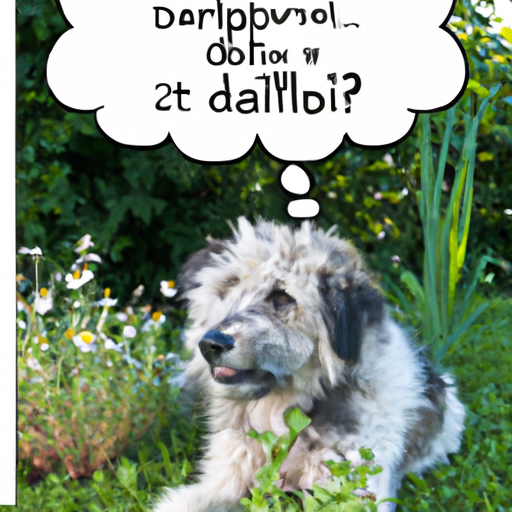Why Does Your Furry Friend Have This Unusual Eating Habit?
It might surprise you to find your beloved pet munching on weeds in your backyard. But, rest assured, you’re not alone. Many dog owners have witnessed this strange behavior. However, this doesn’t mean it’s a habit that should be ignored. So, why do dogs eat weeds? Let’s delve into this mystery.
-
Dietary Needs: Dogs sometimes eat grass or weeds when they lack certain nutrients in their diet. Certain types of grass contain essential nutrients that your dog might be craving.
-
Stomach Upset: Dogs may also eat weeds when they have an upset stomach. Eating grass, especially long blades, can tickle your dog’s throat and stomach lining, which can induce vomiting, providing temporary relief.
-
Boredom: Sometimes, dogs might nibble on weeds simply out of boredom or anxiety.
Potential Dangers of Dogs Eating Weeds
Despite these reasons, eating weeds can pose significant risks to your dog’s health. Here are a few potential dangers:
- Some weeds are toxic to dogs. These can cause serious health issues or even death.
- Weeds can be a choking hazard, especially for small dogs.
- Weeds can sometimes be sprayed with pesticides or other chemicals, which can be harmful or deadly to dogs.
When to Consult a Vet
While occasional weed eating might not be a cause for alarm, there are situations where you should definitely consult your vet:
- If your dog is eating weeds excessively or obsessively.
- If your dog starts showing signs of illness after eating weeds.
- If you suspect the weeds your dog is eating might be harmful or toxic.
How to Prevent Your Dog from Eating Weeds
Here are some proactive measures you can take to prevent your dog from eating weeds:
- Keep your dog’s diet balanced and nutritionally complete.
- Provide plenty of physical and mental stimulation to keep your dog from getting bored.
- Regularly inspect your yard for potentially harmful weeds and remove them.
FAQ
Q: What weeds are toxic to dogs?
A: Some toxic weeds for dogs include foxglove, deadly nightshade, and ragwort.
Q: What should I do if my dog ate a toxic weed?
A: If your dog ingests a toxic plant, it’s important to seek veterinary care immediately.
Q: How can I tell if my dog is eating weeds due to nutritional deficiencies?
A: Signs can include changes in appetite, weight loss, dull coat, and other unusual behaviors.
Remember, when it comes to your dog’s health, it’s always better to be safe than sorry. If you’re unsure why your dog is eating weeds, or if your dog starts acting sick, it’s time to call the vet.



